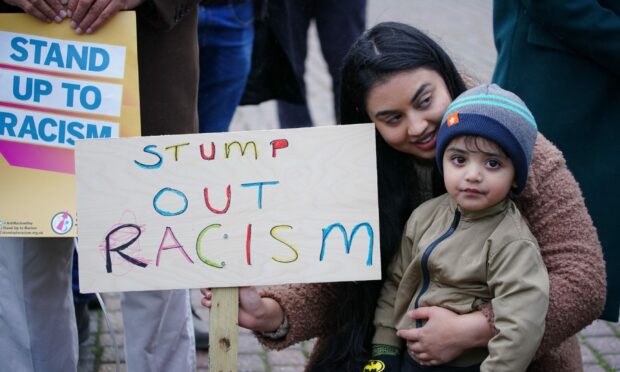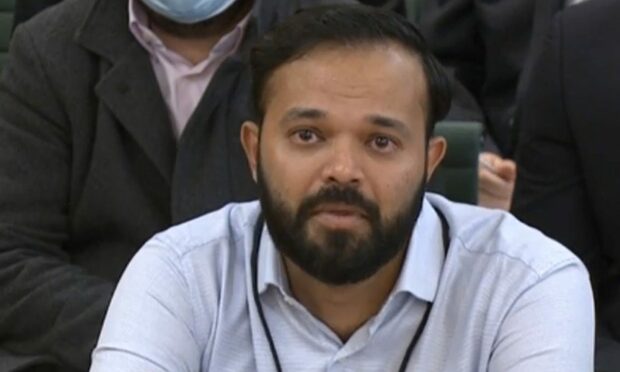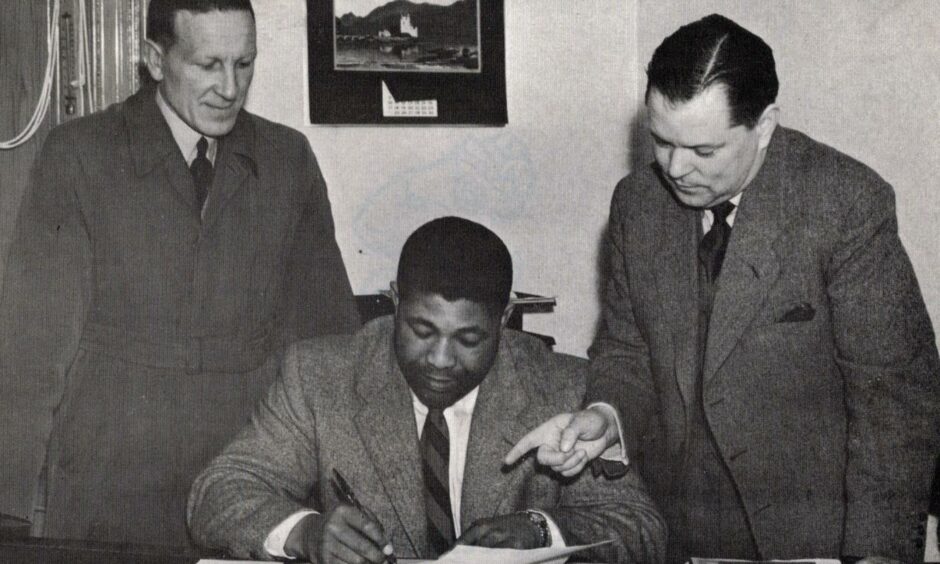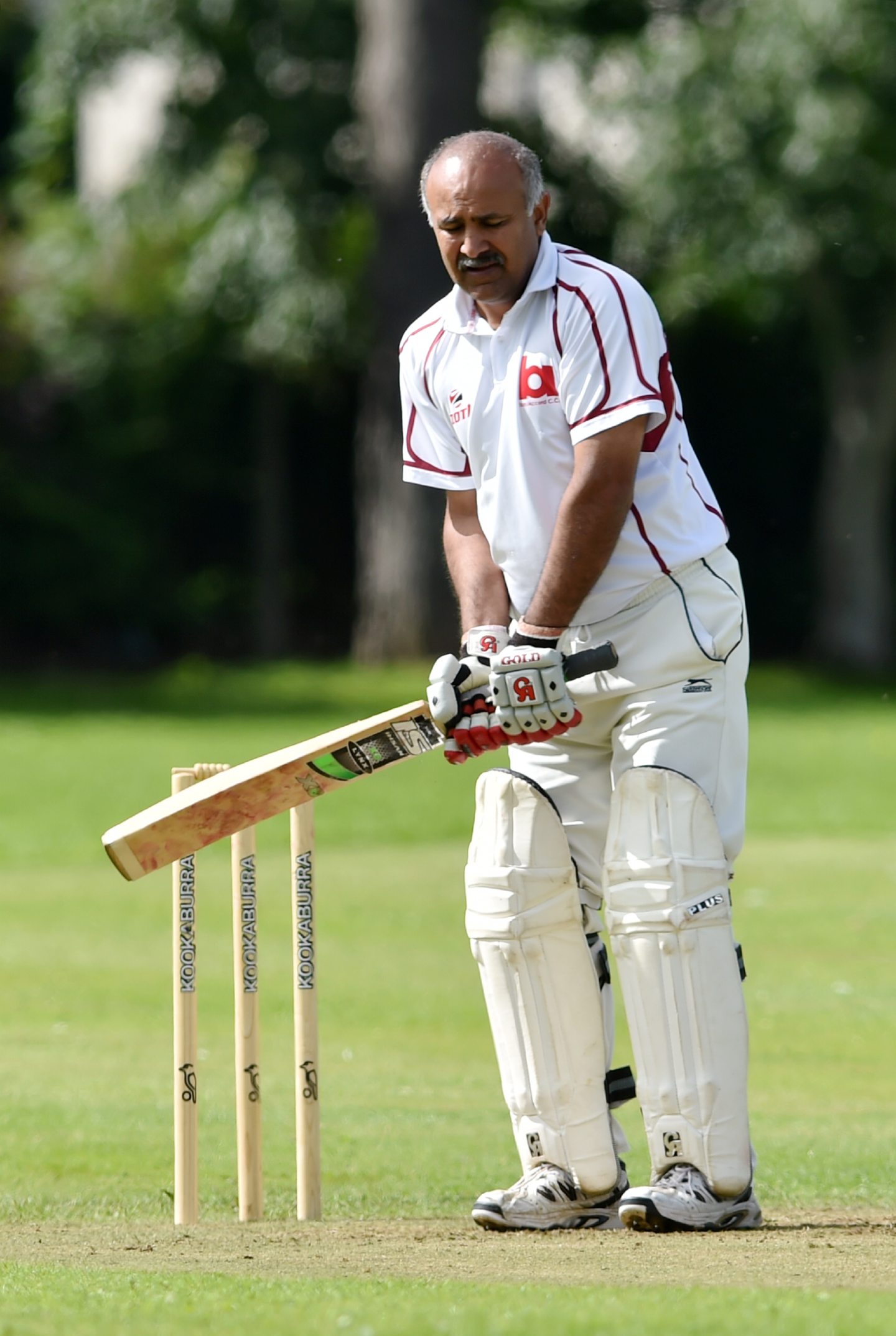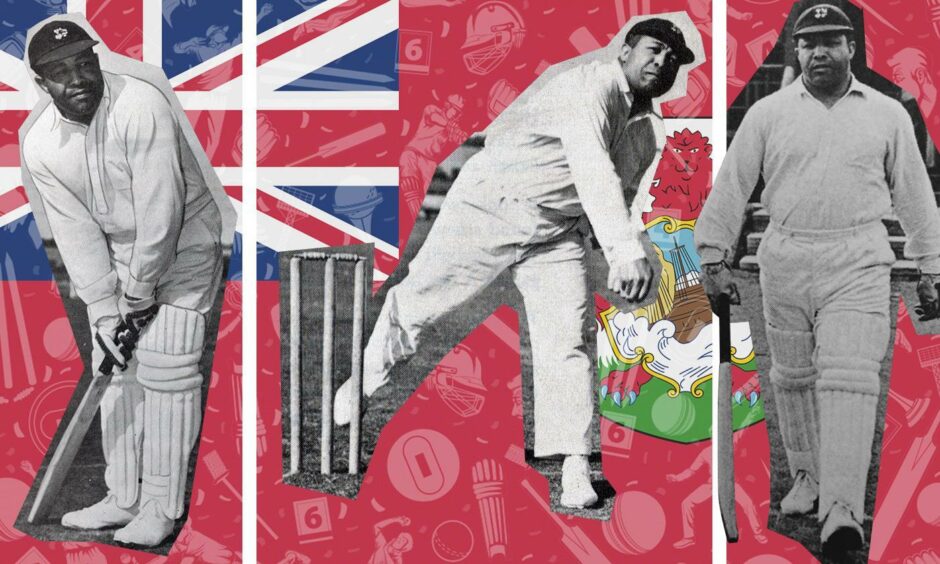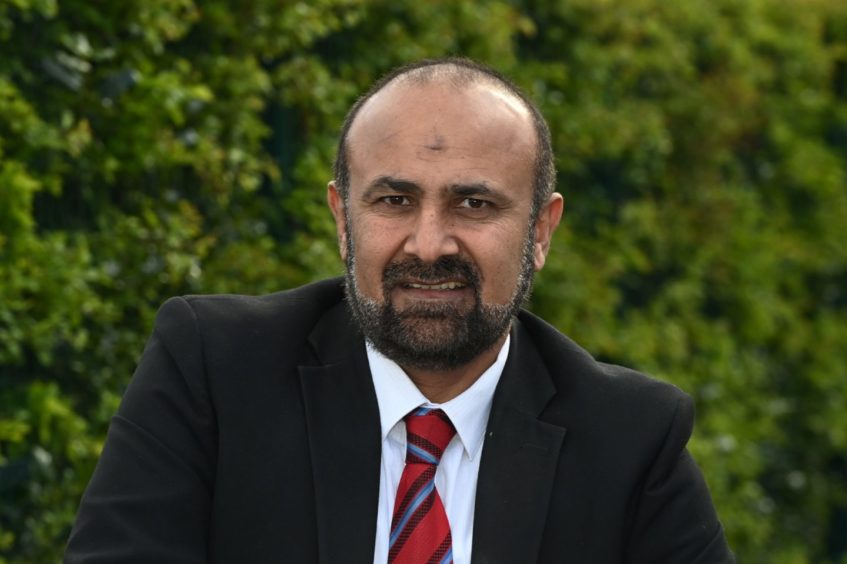M Tauqeer Malik has spent the last 30 years playing and championing cricket across clubhouses in the north east of Scotland.
He has watched youngsters of all ages and backgrounds mingle with senior professionals at Mannofield and enjoyed the cut and thrust of the Aberdeenshire Grades circuit.
He has become a trustee of the game in the region and relished wearing as many hats as Audrey Hepburn during his decades in the nets, on the boundary and in the pavilion.
The sport in England has been devastated in recent days by the damning testimony of former Yorkshire player Azeem Rafiq, who has lifted the lid on a series of racist incidents he experienced at the hands of coaches and players while employed by the county.
The revelations he made in front of MPs at Westminster earlier this week have shocked many observers.
His testimony implicated several former and current England Test players, including Michael Vaughan, Matthew Hoggard, Gary Ballance, Martyn Moxon, David Lloyd, Tim Bresnan and Andrew Gale, with players from other counties also becoming mired in the controversy.
But if it has been a shameful chapter – and it’s still far from finished – the negative headlines shouldn’t be used to smear the game elsewhere in Britain.
Mr Malik has spoken of his delight at how cricket has embraced multiculturalism and diversity in the city where he has lived since the 1990s.
The long-serving Labour councillor told me: “It’s very sad, what has happened to Azeem Rafiq, and he suffered (at Yorkshire) for a long time, but I have been involved in cricket for many years, whether at Mannofield or at Bon Accord, and I am proud of the way that we have embraced everybody and encouraged them to pursue this wonderful game.
“I was with Mannofield from 1991 to 1995, then I moved to Bon Accord, and captained them, and also became the captain of the Aberdeenshire Grades Select – which features players from many different clubs – and I am also a trustee of the North East of Scotland Cricket Association.
“I can honestly say I have never seen any racist behaviour in all that time and the sport has welcomed people from all over the world.
“Aberdeen is a brilliant, cosmopolitan city with a lot of diversity and I think we have people living here from as many as 36 different countries.
“If you walk into any clubhouse, you’ll be made to feel welcome, and I speak as somebody who has been offered so much support myself down the years.
Our home in Bermuda was called ‘Mannofield’, after the cricket ground where he spent so many happy summers.”
Beverly Baldwin
“I am in contact with many members of the Asian community throughout the north east and I hear nothing but positive things from them about how cricket builds friendships and forges links between all kinds of people who would otherwise probably never have met.
“For me, it is something we should cherish, something to be celebrated.”
His words have been borne out by the recollections of some of the great professionals who have plied their trade at clubs such as Aberdeenshire, Strathmore and Arbroath, going as far back as the 1930s, and who laid down roots in Scotland and spoke warmly about the welcome they received.
Alma Hunt, the Bermudan maestro, arrived in the Granite City in 1934 and rapidly gained such a reputation that crowds flocked to watch him play.
He called his house Mannofield
His daughter, Beverly Baldwin, told me: “Dad just loved Scotland, particularly Aberdeen, and he was so grateful to be given the chance to play there year after year, and forge friendships with so many others at the club.
“It was a joy for him, something he never forgot.
“Our home in Bermuda was called ‘Mannofield’, after the cricket ground where he spent so many happy summers.
“The Scottish link meant an awful lot to him throughout his life.”
Nigel Hazel, another Bermudan ball of fire, who signed for Strathmore in 1954, could have earned a fortune in the Lancashire Leagues or even progressed to the English county circuit, but this flashing blade fell in love with Scotland and it was a passion reciprocated by his teammates.
His son, also Nigel, recalled: “I was also very aware, from a young age, about the tales of his feats alongside the respect and affection which he received and particularly in his adopted home town of Forfar.
“With dad being the club professional and, later on, the groundsman/steward until his retirement, I spent many summer days on my holidays getting up early with him and going down to the cricket club to watch him at work preparing the ground for matches.”
Racism did not rear its ugly head
Nobody is pretending that racism doesn’t exist in Scotland. The former Scotland player, Qasim Sheikh, has related how casual abuse was often dished out during his career, but he suffered far more of it in football than cricket.
He told me this week: “I experienced clear-cut acts of racism in England (where he played cricket for several years), but it was much worse in football (in Scotland) where I would regularly be called a ‘P*** b*****d’ and I would even hear spectators shouting ‘Slap the P***’, so we have to address it whenever it happens and take action against those who commit it.
Good to join @sue_strachan of @CricketScotland on BBC.Sue speaks about the positive plan they have in place to tackle any issues of racism.I stress the importance of making sure those that do speak out are given a safe environment without fear of backlash pic.twitter.com/aRaBCevb6t
— Qasim Sheikh (@sheikhyssj1) November 17, 2021
“However, I am pleased that Cricket Scotland is taking steps to improve the situation and I’m grateful to (president) Sue Strachan for being so proactive in talking to me and making it clear she will not tolerate any racial abuse and sending the message there is no place for it anywhere in cricket.
“I feel we have a long way to go and I have heard from people who are afraid to speak out. Hopefully, we will find ways of helping them in the future.”
There have been contrasting views on the scale of the problem with racism, even among those featured in this article.
Tauqeer Malik spoke with authority as somebody who has visited every club in the north east at some point in his career.
But there again, the response to an interview Qasim Sheikh did with the BBC on Wednesday demonstrated that the idiots and their racist abuse are not confined to south of the border.
Sadly, nobody should be surprised by that.
Yet, from being involved in cricket for many years, I genuinely believe Scotland is more receptive and open-minded in embracing and welcoming folk from various ethnic backgrounds than many other places.
The response to Alma Hunt, to Nigel Hazel, to Clarence Parfitt, who has devoted so many summers to helping others at Arbroath, and to Indian maestro Rahul Dravid in 2003 when he played for the Scottish Saltires was sincere, it was life-affirming and they all reciprocated.
That’s as it should be, on and off the field. The direct opposite of how it has been at Yorkshire for far too long.
